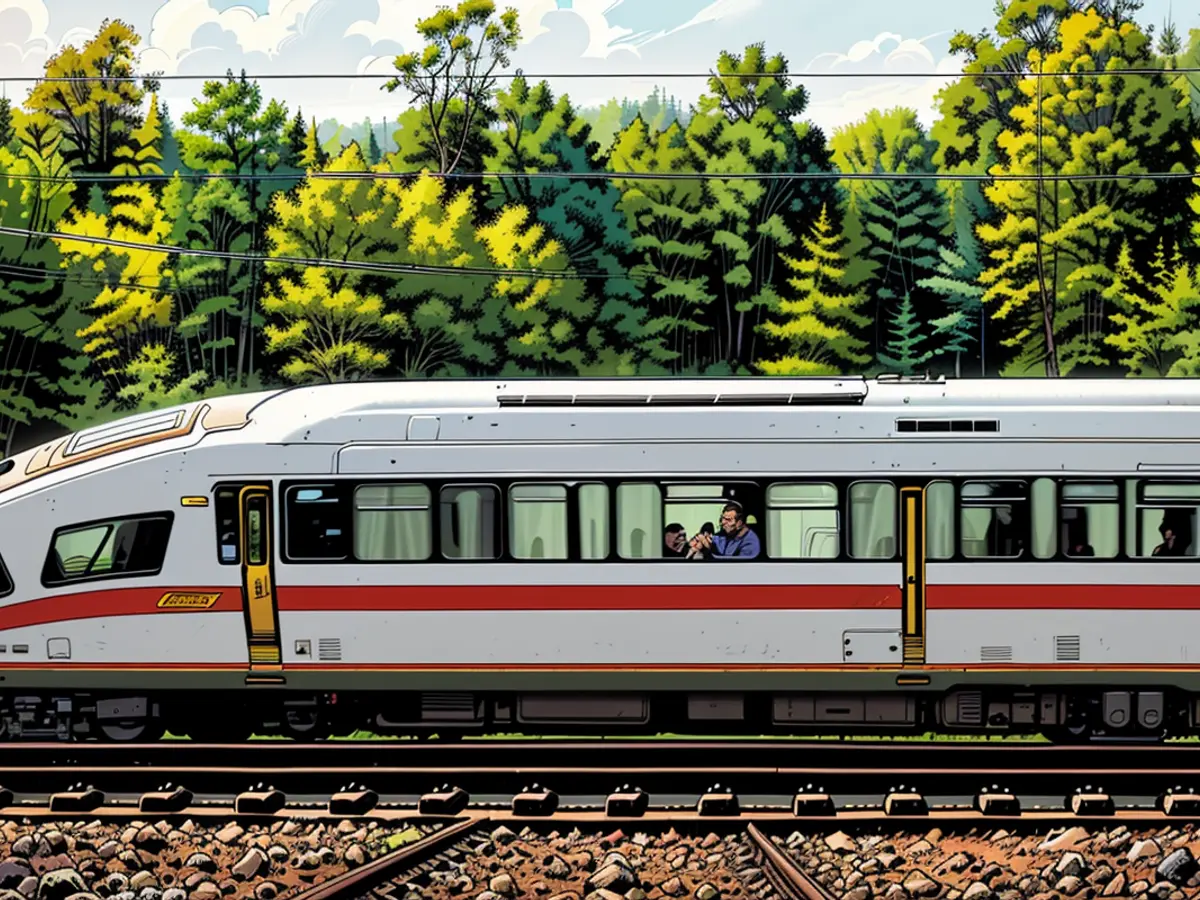Costa of railway journeys - Railway fare hike causing 'financial jolt', raising questions about affordability of rail travel.
With a billion-dollar boost from the government, the railways aim to enhance their service, but this could lead to unwanted consequences: rail travel might become more costly. This is because more investment means higher "track fees" - a type of rail tax - for transport companies. These track fees are expected to surge significantly in 2026.
The transportation sector talks about a "fee hike shock". Increases in fees and limitations on offers are also on the table for long-distance and local travel. The Federal Ministry of Transport is trying to prevent this.
More investment could backfire
The government has proposed a new budget compromise for 2025 to fill billion-dollar budget gaps mainly by reallocating funds at the state-owned German Railway. It's set to receive an additional 4.5 billion euros in equity, which won't count towards the debt limit and is intended to replace direct subsidies from the federal budget.
Initially, an equity increase of around 5.9 billion euros was planned, which the railway would use to renovate its aged rail network. The railway is also set to receive a billion-dollar loan. In total, it's to receive more than 20 billion euros in new funds in the coming years.
But: the railway needs to pay interest, which it finances via higher track fees.
All railway companies have to pay track fees
This is a kind of "rail tax" levied by the railway infrastructure subsidiary InfraGo. All companies using the railway infrastructure have to pay it, including the railway's own transport companies. With these funds, the railway covers operating costs, maintenance costs, and investment contributions to the more than 33,000-kilometer-long rail network in Germany.
Plans for 2026
InfraGo is planning a significant increase in track fees for 2026, which would mainly impact regional transportation. InfraGo has requested an increase of 23.5 percent from the Federal Network Agency for regional transportation. On average, prices are set to rise by 19.1 percent from 2026. Long-distance transportation would increase by 10.1 percent, and freight transportation by 14.8 percent.
The industry fears that such significant increases could have far-reaching effects on rail services: "There's a risk of less rail traffic for more money", said the managing director of the Rail Industry Association, Sarah Stark.
According to reports from "Süddeutsche Zeitung", several federal states expect cuts in regional trains and S-Bahn services due to the higher rail tax. Baden-Württemberg's transportation minister, Winfried Hermann (Greens), stated that a significant increase in track fees would pose significant problems for local rail transportation in the states.
Already authorized for 2025, the Federal Network Agency has approved a significant increase in track fees for long-distance and freight transportation. For the requested increase for 2026, the railway assumes that this cap will be overturned in court.
Industry Calls for Reform
"Previous infrastructure financing subsidies could have prevented this," says Peter Westenberger, managing director of the Association of Freight Railways. Like many other stakeholders, he calls for a reform of the track pricing system.
"It is therefore all the more important that the federal government now introduces a Modern Rail Act to create a long-term, predictable financing structure for rail infrastructure through a Rail Fund," says Stark from the Rail Industry Association.
InfraGo informs companies that discussions with the federal government are currently underway regarding a compensation mechanism to offset the burden of the track fee increase.
Federal Government Promises Assistance
The Federal Ministry of Transport announced concrete measures: "Combining equity and loans will mitigate the impact on corporate debt and track fees," a spokesperson said. In addition, the ministry has secured funds to continue subsidizing track fees and will significantly reduce the prescribed return on InfraGo's equity.
Furthermore, the ministry will "soon" present a concrete roadmap for making the financing mechanism for rail infrastructure in Germany future-proof, in collaboration with the industry and federal states.
Legal Changes?
Green party rail expert Matthias Gastel has already stated that the Railway Regulatory Act must fundamentally reform track fees to enable lower usage fees and more economically viable rail traffic. Westenberger said that a rail infrastructure operator oriented towards the common good, like the Autobahn GmbH, should not have to generate profits.
The additional funding for the railways from the German government in the form of equity will increase track fees, as stated by InfraGo, the railway infrastructure subsidiary. According to Süddeutsche Zeitung, several federal states anticipate reductions in regional trains and S-Bahn services due to the hike in rail tax or track fees.








